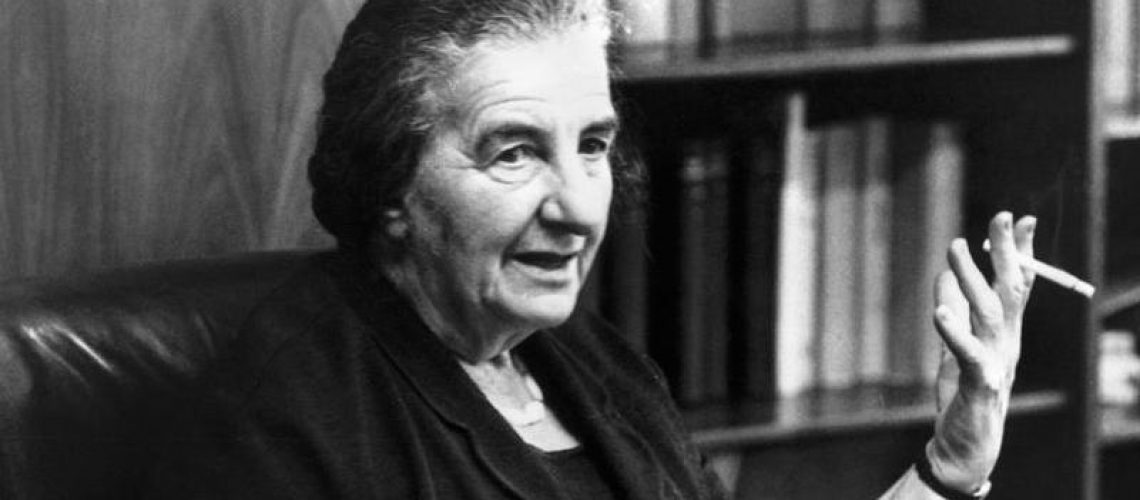Recently I attended a program of Manhattan’s Temple Emanu-El Skirball Center on Golda Meir, a presentation that concluded a four-part series led by Meir biographer Elinor Burkett. The audience consisted mostly of oldsters who adored Golda for her folksiness and feistiness.
I should have known better, but what drew me was the hope that I’d learn something more about why Golda had ignored Sadat’s peace overtures for two years prior to the Yom Kippur War. Also, I wanted to know why a deal wasn’t simultaneously worked out with Jordan’s King Hussein in the early ’70s that would have basically settled the Palestinian issue within the context of Jordan (especially if Gaza were incorporated into Jordan in return for some Jordanian territorial concessions in Jerusalem and the West Bank).
Being a news junkie even as a young person in the early 1970s, I very clearly recall Egypt’s Pres. Anwar Sadat repeatedly offering Israel “a total peace” in exchange for “a total withdrawal” from the Sinai, while Golda obstinately insisted that Sadat was not saying anything “new.” I also recall Israel’s ambassador to the UN, Gideon Raphael, forthrightly stating that Sadat was saying something unprecedented for an Arab leader. With no Israeli response, Sadat began to express impatience, warning that this situation of “no war, no peace” was unacceptable; sure enough, Sadat eventually coordinated with Hafez al-Assad’s Syria to launch the Yom Kippur War in October 1973.
Nobody outside of high governmental circles in Israel and Jordan knew that King Hussein was also reaching out to Golda for a possible peace. Decades later, Israeli-British historian Avi Shlaim (although not a Zionist, he is a reputable historian) documented the extensive contacts between King Hussein and Golda’s government after Israel had saved his throne from Arafat’s rebellion in September 1970 by fending off Syria’s attempt to invade Jordan in support of the PLO. East Jerusalem was probably the key sticking point in why a treaty with Jordan was not concluded 20 years before it actually was; but I’m unclear on whether it was King Hussein or Golda who was inflexible in this regard.
Burkett’s bio of Golda does not reference Jordan’s monarch in the index, but in dialoguing with the author from the audience and at the subsequent reception, I found that she was aware of the issue (both re Hussein and Sadat), but fuzzy on the details and dubious about these being missed chances for peace. Still, according to Gal Beckerman’s 2008 review of Golda in The Forward, Burkett was fully aware of Meir’s bull-headed rigidity; the title of Beckerman’s article almost tells it all: “Will of Iron, Heart of Stone: Book Shines Light on Golda Meir’s Harder Side.”


